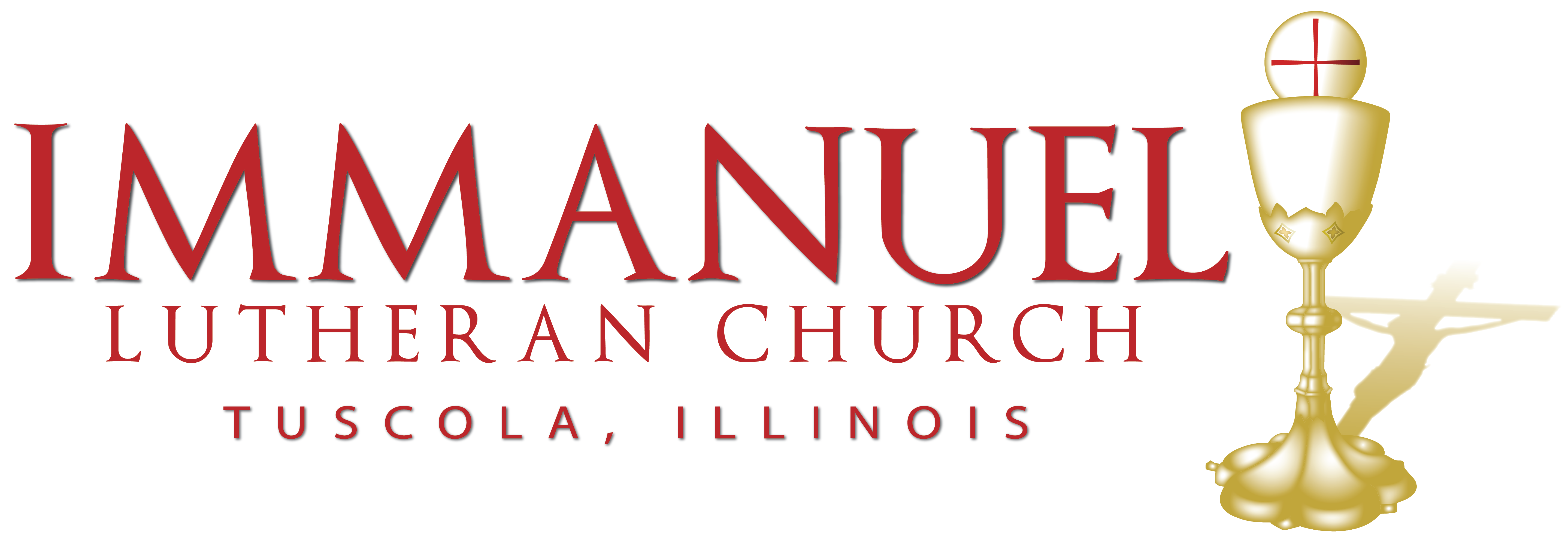The Sixth Sunday of Easter
John 16:23–33
+ IN NOMINE IESU +
“Truly, truly, I say to you, whatever you ask the Father in My name He will give you. Until now you have asked nothing in My name. Ask, and you will receive, that your joy may be full.” St. John 16:23-25
What do you want? Perhaps, you see what others have, and you don’t have it. They have a nicer house, a new car, a better job, better connections. And you want what they have. Or, perhaps, it’s not so much what you want to get as it is what you want to get rid of: the chronic pain that never goes away; the weakness that holds you back; the bad habit that controls your life and keeps you from being free.
St. Augustine famously said that “Love God, and do what you will.” Then he asks, “But what do you want?” You can see the point. If you love God, what you want is very different than those who don’t love God. What do you want? Thus, we must distinguish between carnal joy and spiritual joy. Carnal joy is getting things that please the flesh and avoiding things that bring us bodily pain. Spiritual joy is taking pleasure in God. People confuse the carnal with the spiritual. Many people have a view of heaven, for example, where you get to do all of the pleasurable things that were denied to you here in this life.
Spiritual joy comes from knowing God. It is the true joy of life. It is the joy of being at peace with God. God is not angry with you and you are not angry with him. It is the joy of resting with God. You don’t worry about your relationship with him. You have his favor. There is nothing you must do to gain it. You already have it. God’s favor resting upon you colors everything you think, say, and do. It is a joy that remains even when the life you live in your body endures sorrow, pain, and disappointment.
God gives this joy. He gives it in Jesus’ name. That is, he gives it for Christ’s sake. To pray in Jesus’ name is to pray relying on Christ’s vicarious satisfaction. Vicarious means he did it for us, as our representative or substitute. Satisfaction means he has satisfied God. He has met all of God’s demands upon us. Sometimes we refer to the vicarious satisfaction as the vicarious atonement because when Jesus satisfied God’s demands he also made peace with God. This is what atonement means. God is at one with us for Christ’s sake. Praying in Jesus’ name is praying to the Father in reliance upon Christ our Redeemer and Savior. It is claiming a status with God that only Christ can give to us.
Praying in Jesus’ name doesn’t necessarily mean that we say “in Jesus’ name” at the end of our prayer. The Lord’s Prayer – named after the Lord Jesus who taught us to pray it – never mentions Jesus by name. Still, we pray the Lord’s Prayer in Jesus’ name and by his invitation.
Some prayers end with the familiar words, “through Jesus Christ your Son our Lord who lives and reigns with you and the Holy Spirit, one God, now and forever.” We address the Father through the Son by the power of the Holy Spirit. There is no other god than the Holy Trinity. This doesn’t mean that we must specifically identify the Father, and the Son, and the Holy Spirit by name in every prayer. It does mean that we pray only to the Triune God. There is no other god.
To pray is to ask. Prayer is calling on God, making our requests known to him. He knows what we want and need before we ask, but Jesus commands us to pray. The faithful pray. The reason people don’t pray is because they don’t believe. It’s quite simple. Children ask their heavenly Father for his help, his grace, his comfort, his wisdom, his guidance, his forgiveness, his protection, and every other blessing he has to give. Children of our Father in heaven are his children only through faith in Christ. St. Paul writes in Galatians 3:26-27, “For you are all sons of God through faith in Christ Jesus. For as many of you as were baptized into Christ have put on Christ.”
Only when we are covered by Christ’s righteousness are we acceptable to God. Prayer is not the means by which we are made acceptable to God. Christ has won this status for us by his holy obedience and vicarious suffering and death. We receive it through faith alone. Prayer doesn’t gain it. We pray because we already have it. If we were not God’s children we couldn’t pray as if we were.
Jesus tells us to pray – to ask the Father in his name – so that our joy may be full. What should we pray for? Jesus says, “Whatever you ask the Father in My name He will give you.” What should we ask him for? What do you want? What would bring you the fullness of joy if you had it?
What does a Christian want from God? God! We want him. He is our true joy. Consider what Jesus taught us to pray for. We pray that God’s name be hallowed among us, that he rule over us by his grace, that his good and gracious will be done among us and for us, that we receive from him what we need to live day to day in this world, that he forgive us our sins as we forgive those who sin against us, that he keep temptation from leading us into sin, and that he deliver us from every evil of body and soul and receive us to himself in heaven. What does all of this amount to? It is to know him and be known by him. It is to enjoy his love. “Seek, first, the kingdom of God and His righteousness, and all these things will be added to you” (Matt 6:33).
St. Augustine prayed: You have made us for yourself, O Lord, and our heart is restless until it finds its rest in you. The joy of prayer is finding our rest in our Creator. For God the Son became our brother and suffered and died for us that his Father is now our Father. We ask in Jesus’ name because in Jesus’ name the creation is reconciled to the Creator. God joins his creation to bring us back to Himself, to give us access to all that is His. He is holy. He is separated from sin, from pain, from death, from all misery of human existence. He is so far above it that it cannot touch him. After all, he is God.
Now look and see what God has. He who cannot suffer suffers the penalty of sin. He, whose holiness cannot tolerate evil, bears the evil of all humanity. He experiences the pain. He suffers the death. He endures the misery. He, who lives in that unapproachable light into which no sin can enter, becomes sin for us, absorbing as a sponge all the wrongs we committed against each other and Him. This is what the eternal Son of God did.
And we are His. He claimed us in water and Word, placed His name upon us. Purchased and won us from all sin, death, and the devil. Not with gold or silver, but with HIs holy precious blood and His innocent suffering and death. So that I may be His own. And because we are belong to Him, He is ours, all that is His is ours. We claim everything that belongs to God. It is ours. Having fellowship with our Creator the whole creation serves us. We own the world. No sin can burden our conscience. No sickness can deprive us of our peace. No loss can make us poor. We know God and are known by him. Our restless hearts have found rest in Him. And that is true joy that nobody can take away from us.
Ask and you will receive, Jesus says, that your joy may be full. Love God, and do what you will. But what do you want? Your joy is already now full, because He is our joy and you, by Word and Sacrament, are filled with Him. So ask and you will receive. Amen.



0 Comments